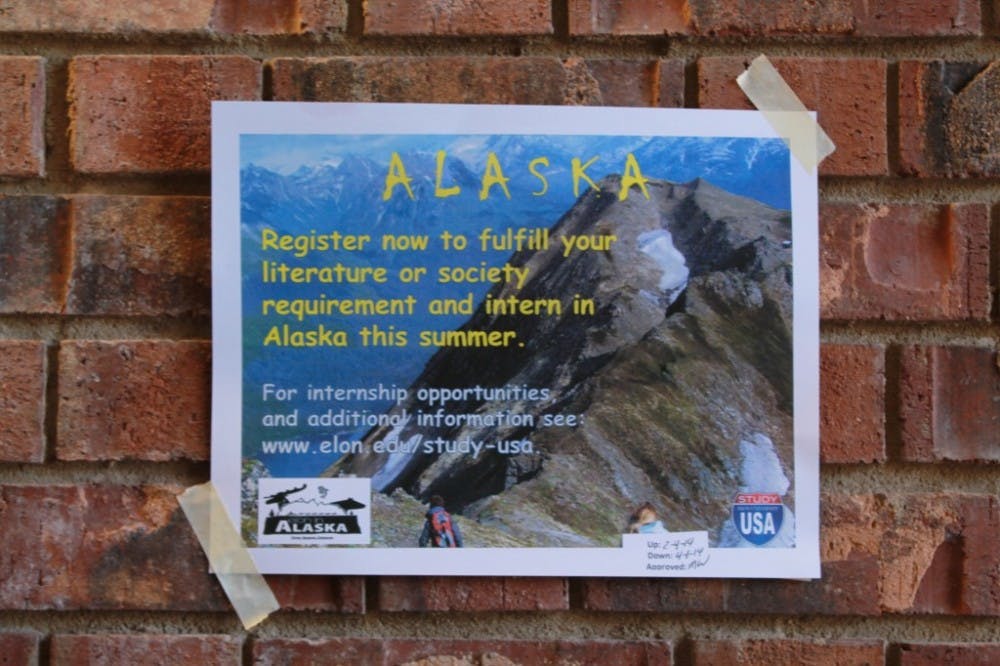After they complete final exams this spring semester, some Elon University students will abandon the continental United States and embark on the course to an internship program in Alaska.
The Elon in Alaska program, adapted from a course that has been periodically offered for about a decade, now includes an 8-10-week internship component in 2014. The program allows students of all class years to receive six credit hours while completing the goals of all Study USA programs: live, learn and intern.
According to Phil Smith, interim director of domestic programs, the office added the internship component to the course so that students could gain valuable experience.
“As with any internship, we hope that it will allow students to develop skills to help with future jobs,” he said.
But before interning, students in the program take “Into the Wild,” a general studies and literature course that gives credit towards students’ society or expression requirements and fulfills the experiential learning requirement. The course starts in late spring semester, when students meet with Barbara Gordon, associate professor of English, and have online discussions about literary texts that relate to aspects of Alaskan life. At the beginning of summer vacation, students reconvene with Gordon in Alaska and embark on a 12-day journey on the Kenai Peninsula with Alaskan outfitter Joe Jacob.
“As a class, we were able to learn about the people, culture and environment,” said Frances Hamilton, an Elon graduate who went on the last Alaska trip in summer 2012. “Dr. Gordon encouraged us to make observations and connections to our readings.”
Gordon said that meeting natives and traveling outdoors in Alaska allows students to develop an appreciation for simpler lifestyles.
“In the readings, so much of what Alaska is about is surviving the climate,” Gordon said. “Talking about the elements of living in Alaska is part of the experience. Part of the experience is the wilderness of the environment there and its pristineness.”
According to Gordon, Alaska’s historical and environmental offerings give way to the host of internship sites that can appeal to students of all majors. Internships cover broad interests, including environmental science, communications and business. She said that interning in Alaska is distinctive when compared to the other summer Study USA locations: New York, Los Angeles and Washington DC.
“For students who really want to stay in Alaska and gain work experience, they can,” Gordon said. “Some people might not want internships in large cities, and Alaska [offers] a different culture.”
Interested students can come to the Study USA office to receive help with finding internship opportunities or filling out the program’s application. The $6500 cost of Elon in Alaska includes ground transportation, meals, Elon tuition and program fees for the 12-day trip. Students are responsible for transportation fees to and from Alaska as well as living expenses during internships.
For specific questions about the course and trip itinerary, students should direct questions to Gordon or Jacob.
As the March 15 application deadline nears, Hamilton encouraged students to apply, calling her Alaska trip a “once-in-a-lifetime experience.”
Gordon agreed and noted that the internship makes the opportunity to live in Alaska more unique.
“My hope is enough students will show interest to get this program off the ground because it’s new and it’s special,” she said. “This could give them an experience for the summer or give them new thoughts about their life [goals].”


